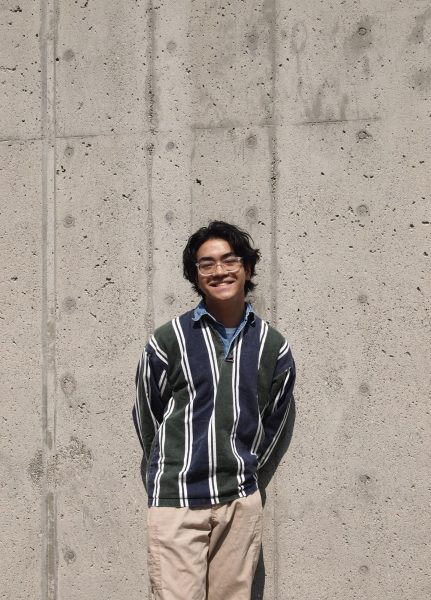Open to growth, intellectually competent, loving, committed to doing justice, and religious. Bellarmine prides itself on providing various forms of education, service, and community involvement to develop students who embody these five Grad-at-Grad values. There are clear implications for what it means to be open, intelligent, loving, and just, but “religious” is a double-edged sword, per Bellarmine’s website; graduates ought to have developed 1) a basic knowledge of the Catholic Church’s doctrines and 2) the agency to choose a fundamental orientation toward God. But, because of our generation’s increasing religious disaffiliation and the integration of Catholic theology into Bellarmine students’ required courseload, some may feel that “fundamental orientation” isn’t much of a choice.
Throughout America’s generations, religious inclination has been in notable decline. Each generation upholds different social values and psychological worldviews than previous ones, and this is undoubtedly the case for Gen Z. According to the American Survey Center, 34% of Gen Z are religiously non-affiliated and are far more likely to be atheist or agnostic than Millennials or Gen X. This increasing indifference toward God is prevalent within Bellarmine, too, raising staunch opinions among many students– probably because we’re required to take six semesters of theology. While this requirement is typically justified by choosing to enroll in a Jesuit institution, it leaves the question of the present religious non-affiliation unanswered. Because of this, should the theology curriculum reflect the unwavering faith of the institution or the waning faith of the students?
“If you can’t associate yourself with God, you can replace His name with ‘love. ‘ ” According to freshman lector Heidi Hallett, this is how the curriculum is introduced to those who may be atheist or agnostic, avoiding Christ-like language. This approach abstracts complex theological perspectives to love, seeking a common spiritual ground. As described by Rick Keller-Scholz, longtime theology teacher, “Many families expect some sort of moral or spiritual guidance even if you don’t identify with a certain spiritual tradition. The real question is, how does Bellarmine respect families and students who don’t identify and yet want something that lasts and that has meaning?” Having 42 years of teaching under his belt, Keller-Scholz recognizes this question may never have a concrete answer.
Bellarmine is definitively a Catholic, Jesuit institution, so one can easily argue that a focus on Catholicism should be expected by anyone who comes here to study. With six mandatory semesters of Catholic classes such as Christology for freshmen and Pilgrim Church for juniors, the school is undeniably meeting its goal to provide students with a “basic knowledge of the Catholic Church’s doctrines.” However, its tandem goal of providing “agency to choose a fundamental orientation toward God” has been a harder sell.
Senior Dylan Bianchi, a professed atheist, believes the argument that Catholic classes are “what you get” when you enroll in a Catholic school is “not an invalid statement,” but this does not necessarily foster an orientation toward God. “I’m not complaining about having to take religious courses,” Bianchi explains. “In exchange for what the school offers, I go to these courses I’m not super invested in. The thing is, I do think there’s something here with parents. Parents may send us here expecting a strengthened faith, but I would be surprised if these classes were deepening faiths.” He recalls attending a public elementary school where his interactions with his Jewish, Hindu, and atheist classmates made him more intellectually curious about faith, especially his own. Bianchi’s observation is that “when everything gets rooted in Catholic ideas, you don’t have open discussions. When that happens, Catholicism is taught as a set of set-in-stone facts or dogmatic ideas. It’s very reductive and shallow.”
Lauren Lai, a junior who was raised in Catholic tradition but now identifies as atheist, agrees that Catholic classes come with the territory, but she didn’t come here because it’s a Catholic school. “Yeah, you’re at a Catholic school and expect to learn Catholicism. But, many others come here for education opportunities, sports, or other extracurriculars.” What bothers Lai is that six religion classes are mandatory and they are taught with the expectation that students have grown up in the Catholic tradition. “A big gripe a lot of people I know have is that we’re forced to take six semesters [of theology]. I think I’d be interested in learning more if I had the option to choose.” Perhaps the agency to choose our classes will facilitate the agency to choose our faith.
For some who came to Bellarmine in order to deepen their faith, the experience of non-affiliated students is interpreted differently. Hallett felt “Bellarmine is doing a pretty good job of incorporating religion into education but not to the point where people who aren’t religious feel ostracized.” Having multiple nonreligious friends, Hallett saw an apt accommodation for all levels of faith, although the opinions of Bianchi and Lai suggest the opposite.
For future Bellarmine students, the faith experience of the other side may remain a black box. Regardless, we all attend Bellarmine within the context of the Jesuit tradition. To Keller-Scholz, people should “see the beauty in a Catholic lens of the world. It makes sense to me– It’s good and calls us to bring more life into the world.” He has witnessed a diverse set of religious perspectives, and hopes future theology curricula will incorporate this, rather than asserting ideas perceived as dogmatic. “It’s part of a much longer story. I want students to be curious about their walk of faith. When they walk into college and encounter other faiths, they’ll meet others on the same quest for truth.”


